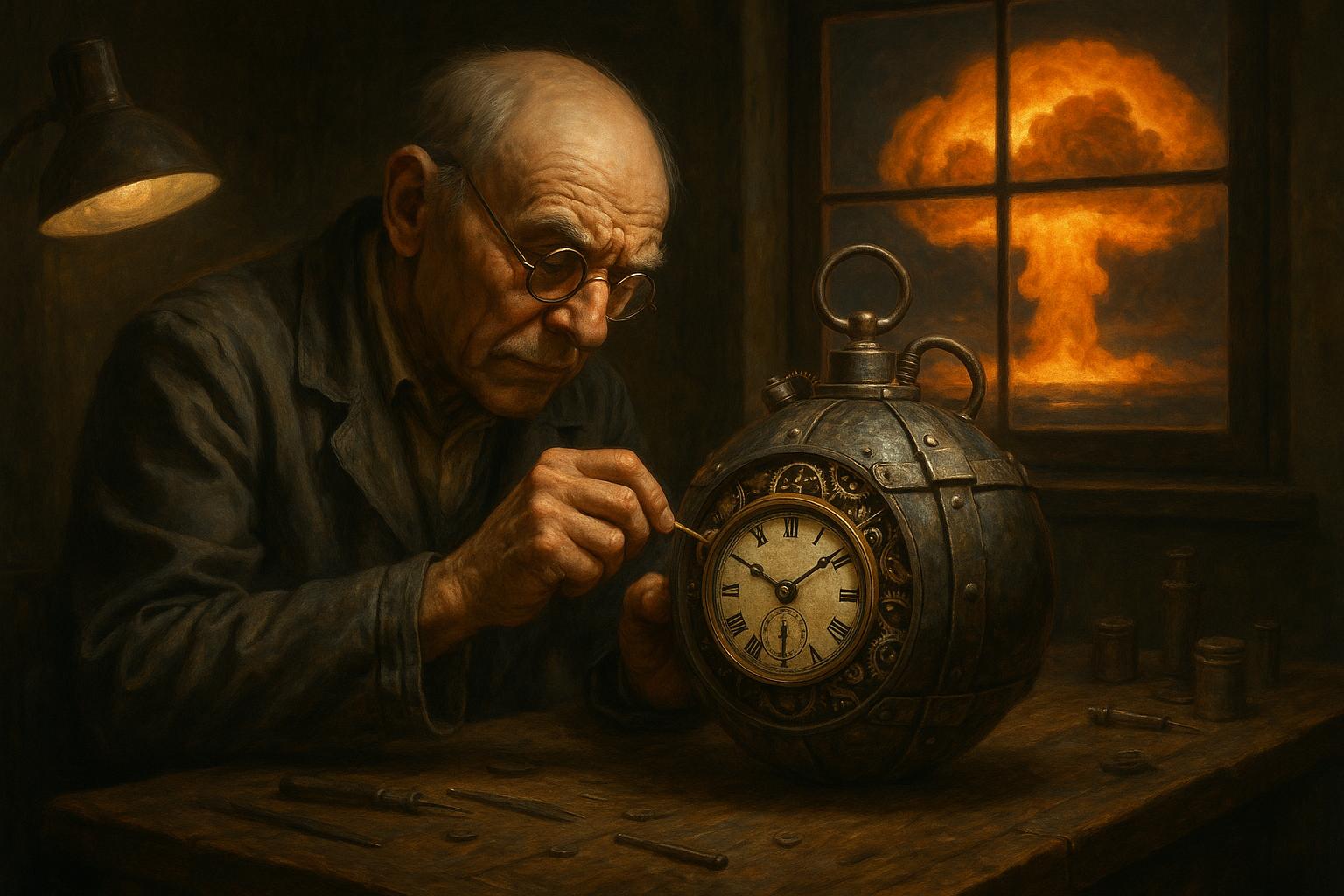Kathryn Bigelow’s latest film, A House of Dynamite, delivers a high-stakes, nerve-wracking thriller set against the terrifying prospect of a nuclear missile headed for Chicago with less than 20 minutes’ warning. The film questions how the United States would respond in such an apocalyptic scenario where satellite technology fails to identify the missile’s origin, leaving military leaders and the President grappling with a life-or-death decision amid global uncertainty.
Marking Bigelow’s return to directing after an eight-year hiatus, the movie unfurls over three acts, presenting the same event from different viewpoints, including those of military personnel and the U.S. President, played by Idris Elba, who appears only in the final act. This layered narrative structure, praised for its brisk pacing and intense atmosphere, masterfully captures the escalating tension and psychological burden between potential catastrophe and calculated retaliation. Bigelow, best known for her Academy Award-winning The Hurt Locker, brings an unflinching realism to the film’s depiction of crisis management inside the Situation Room, where figures like Captain Olivia Walker (Rebecca Ferguson) and key military advisors debate what might become a retaliatory strike.
Critics have lauded the film’s gripping plausibility and precise direction, with many noting the absence of any temptation toward melodrama or unnecessary personal backstories, focusing instead on the raw immediacy of the threat. The screenplay by Noah Oppenheim—a former NBC News president—adds a layer of authenticity, likely informed by direct insight into White House protocols, avoiding the glibness that often plagues political thrillers. The film’s grim reminder is clear: we are living in a world teetering on the edge of nuclear disaster, with the smallest miscalculation possibly triggering global annihilation. This simmering unease is heightened by echoes of Cold War-era anxieties, reminiscent of Sidney Lumet’s Fail Safe, which explored similar accidental launch fears.
Alongside Bigelow’s film, another notable cinematic release is The Smashing Machine, directed by Benny Safdie, which offers a starkly different yet equally gripping narrative. This biographical drama follows mixed martial arts pioneer Mark Kerr, portrayed by Dwayne Johnson in a transformative role. Johnson’s portrayal dives deep into Kerr’s personal struggles with fear, steroid use, and his complex relationship with his partner, played by Emily Blunt. Unlike Johnson’s usual action-hero persona, this role demands vulnerability and emotional depth, highlighting the human toll behind the brutality of the sport. The film has been praised for its authentic portrayal of the MMA scene and Johnson’s commitment, which included enduring significant practical effects injuries during filming, notably an elbow injury during a doorway-breaking scene intended to underscore the physical realism Safdie aimed to achieve.
Meanwhile, Dickinson’s debut film Urchin, about a vulnerable homeless man in London, showcases the breadth of new cinematic voices this season, reflecting intimate human stories amid broader cultural backdrops.
Returning to A House of Dynamite, the film’s urgent handheld camera work and precise editing intensify the palpable sense of chaos and psychological pressure as officials face impossible choices. The President is faced not only with the immediate threat of millions dying in Chicago but also the broader geopolitical consequences of a nuclear response that could ignite a global war. The film’s restraint—keeping the running time under two hours and focusing tightly on the unfolding crisis—ensures a relentless, immersive experience without sacrificing emotional impact.
Bigelow’s film ultimately serves as a stark, contemporary reminder of nuclear peril in an increasingly unstable world. It’s a compelling commentary on the fragility of modern civilisation and the grave responsibilities borne by those in power. With its wide critical acclaim, including a strong 92% rating on Rotten Tomatoes, A House of Dynamite stands as a sobering, urgent work in the political thriller genre, reflecting anxieties that remain all too real in today’s global landscape.
📌 Reference Map:
- Paragraph 1 – [1], [4], [6]
- Paragraph 2 – [1], [4], [6]
- Paragraph 3 – [1], [2], [6]
- Paragraph 4 – [1], [3], [5], [7]
- Paragraph 5 – [1], [6], [4], [2], [6]
Source: Noah Wire Services
